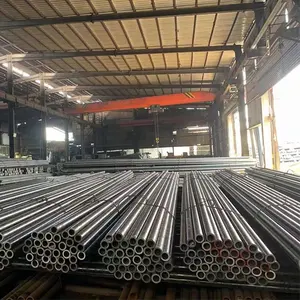
All categories
Featured selections
Trade Assurance
Buyer Central
Help Center
Get the app
Become a supplier














Nếu bạn đang tìm kiếm hiệu quả nhất. asme sb 337 ống titan liền mạch, khám phá Alibaba.com để khám phá bộ sưu tập thú vị sẽ giải quyết nhu cầu của bạn. Những cái này. asme sb 337 ống titan liền mạch chứa nhiều đặc điểm mẫu mực khiến chúng trở thành lựa chọn hợp lý và thiết thực nhất trong danh mục của chúng. Sự đa dạng trong lựa chọn này xem xét các thông số kỹ thuật cho những người dùng khác nhau để bạn luôn tìm thấy sản phẩm lý tưởng. asme sb 337 ống titan liền mạch cho thiết bị của bạn.
asme sb 337 ống titan liền mạch có kích thước nhỏ để có tính di động hoàn hảo và thuận tiện khi sử dụng. Chúng được thiết kế để có hình dạng và kích thước tối ưu để đảm bảo rằng chúng hoàn toàn phù hợp với các thiết bị được sử dụng để cung cấp năng lượng. Các. asme sb 337 ống titan liền mạch không tự xả ngay cả khi để lâu, điều này có thời hạn sử dụng lâu dài. Các. asme sb 337 ống titan liền mạch giữ và tích trữ lượng sạc lý tưởng khi cần thiết để duy trì hoạt động của các thiết bị khác nhau.
Với những công nghệ mới hơn, những thứ này. asme sb 337 ống titan liền mạch tại Alibaba.com đi kèm với các tính năng nâng cao để tạo sự thuận tiện và hiệu quả hơn. Các. asme sb 337 ống titan liền mạch thân thiện hơn với môi trường vì vật liệu của chúng dễ phân hủy sinh học để dễ phân hủy. Các. asme sb 337 ống titan liền mạch tuân thủ tất cả các nguyên tắc quy định và các biện pháp kiểm soát chất lượng. Theo đó, chúng an toàn và không bao giờ bị chính phủ hoặc công nghiệp thu hồi. Chất lượng vượt trội của chúng cũng được khẳng định bởi nhiều đánh giá tích cực từ người dùng.
Hãy thưởng thức những phẩm chất đặc trưng hấp dẫn này ngay hôm nay. Duyệt qua Alibaba.com và xem qua một loạt các thứ hấp dẫn. asme sb 337 ống titan liền mạch khi bạn chọn một từ khóa phù hợp nhất với bạn. Chất lượng và hiệu quả của chúng sẽ chứng minh cho bạn thấy lý do tại sao chúng đáng giá từng đồng mà bạn sẽ chi cho chúng.